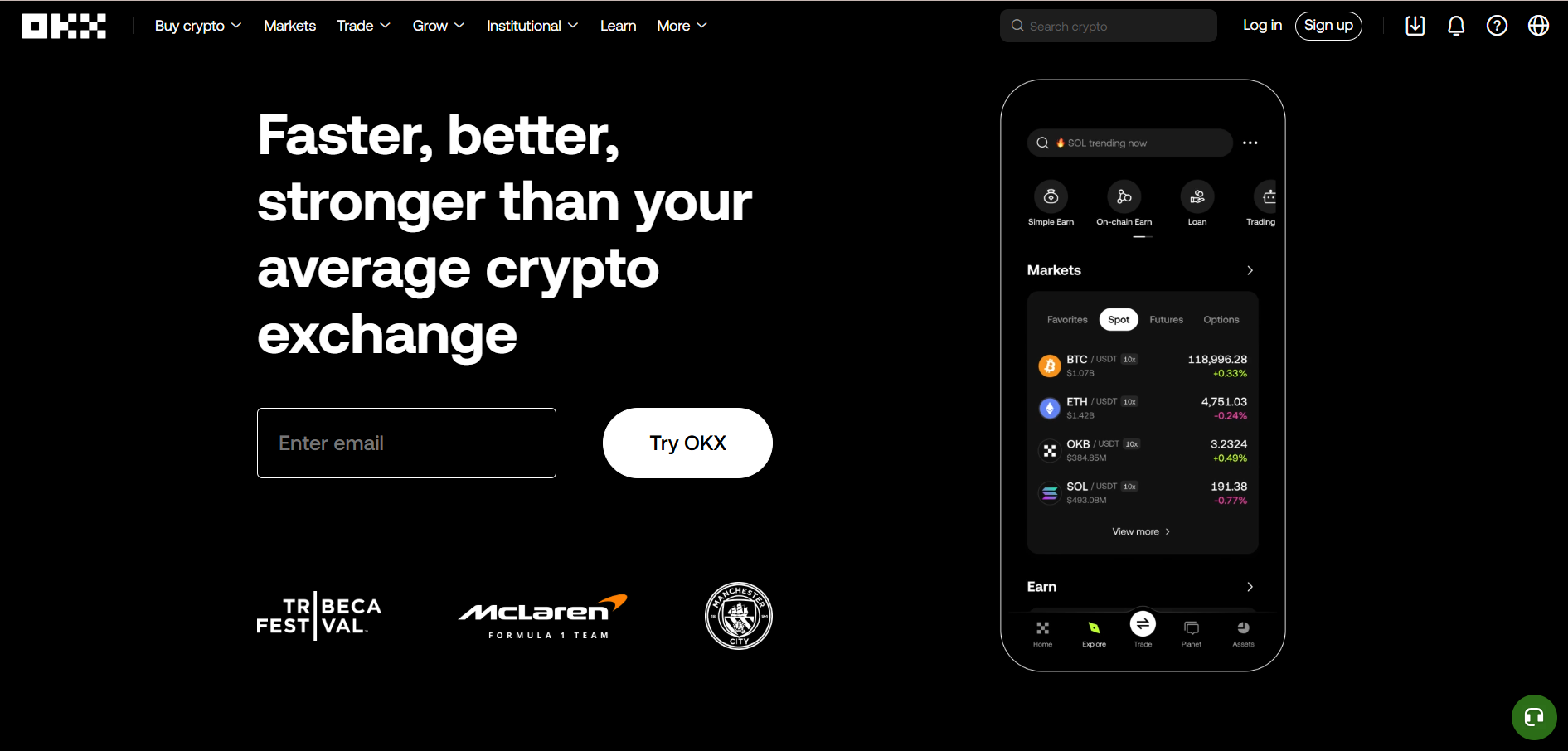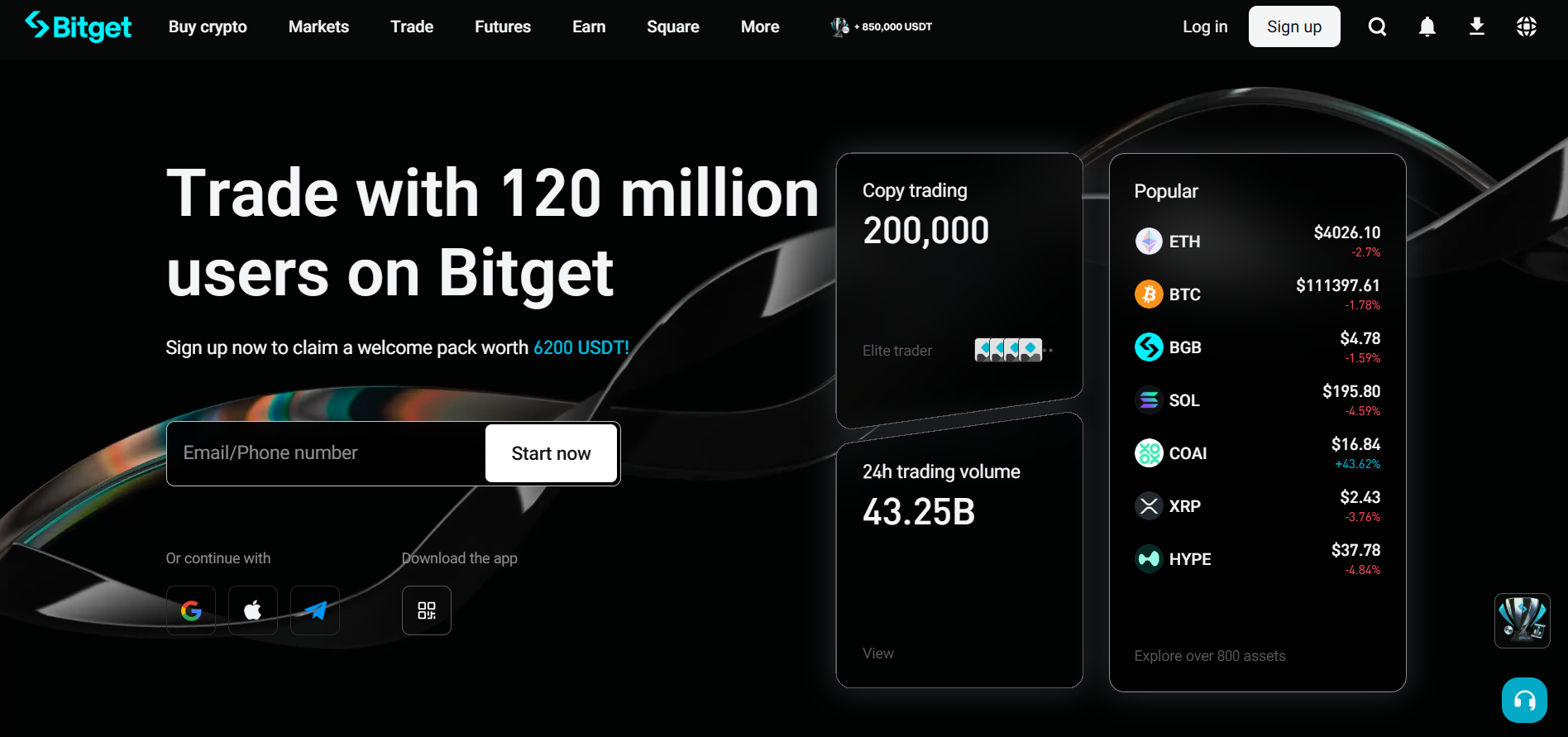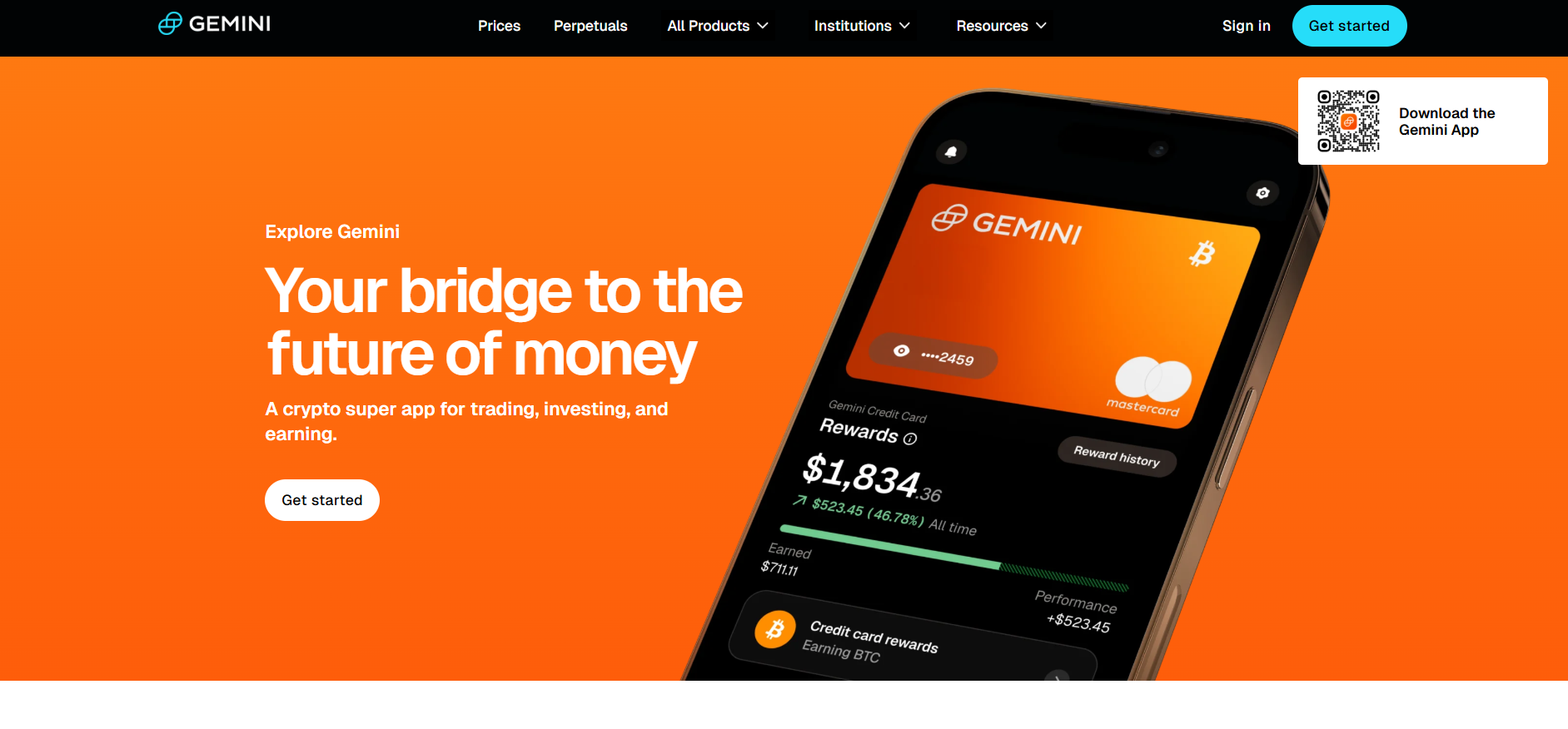If you’ve ever tried to figure out how to start trading cryptocurrency in the UK, you’re definitely not the only one. A lot of people feel curious but also a bit nervous about diving in. It can look complicated at first, especially with all the talk about wallets, exchanges, and regulations.
But honestly, once you get the hang of it, it’s not as hard as it seems. This guide walks you through the basics, what’s legal, how to stay safe, and how to actually start buying and selling.
Key takeaway: Exchanges like MEXC, OKX, and BitGet are the most straightforward option for crypto trading, for more broker-like trading experience consider Bitpanda, eToro, or Gemini.
You’ll learn how to choose a good exchange, avoid common slip-ups, and trade without feeling lost. Even if you already hold a bit of crypto, there’s still something useful here. By the time you’re done reading, you’ll have a clear idea of how to trade crypto in the UK the right way. You’ll also know how to do it safely, legally, and with much more confidence.
Is cryptocurrency trading legal in the United Kingdom?
Yes, it is. You can legally buy, sell, and trade crypto in the UK. But here’s the catch: it’s regulated.
The Financial Conduct Authority, or FCA, keeps an eye on most crypto activities. They make sure exchanges follow proper rules and protect users from scams or shady practices. Sounds strict? It’s actually a good thing because it keeps your money safer.
If a company wants to offer crypto services to people in the UK, they must register with the FCA. That means they also have to follow anti-money laundering and anti-terrorist financing laws. It’s all about keeping the market clean and transparent.
When you sign up on a regulated exchange, you’ll go through something called KYC (Know Your Customer). Basically, you’ll upload an ID and maybe a selfie. It may feel a bit annoying, but it confirms you’re a real person, not a bot.
Now, here’s something many beginners miss: crypto isn’t legal tender in the UK. That means you can’t walk into a shop and pay with Bitcoin (BTC) like you would with pounds. The government doesn’t back crypto the way it backs traditional currency. Still, you can use it freely on approved platforms.
And yes, taxes may not be fun, but they’re important. The HMRC treats your crypto profits as capital gains. So if you make money trading, you might owe some tax. Don’t worry, it’s just like reporting stock profits. Keeping good records will save you a lot of stress later.
So, is crypto trading legal? Absolutely. Just stay compliant, use regulated exchanges, and understand the rules. That’s how you trade smart — and sleep well at night.
What should every beginner know before trading cryptocurrency?
Before you start with crypto, just know one thing — it moves fast. Really fast. One minute it’s up, next it’s down, and if you’re not calm, you’ll panic. Don’t rush in because everyone’s talking about some coin. Take time to watch how the market behaves first.
Next, you need a plan. Decide how much you’re willing to risk, and stick to it. And please, know when to sell. People talk a lot about buying, but selling is where many go wrong.
Also, don’t use money you need for bills or food. Start small. It’s better to learn with a few mistakes than to lose everything at once.
On top of that, be careful with your accounts. Use strong passwords and turn on that extra security step called two-factor authentication. And if someone sends you a random link or offer, just ignore it.
In the end, crypto takes patience. Some days you’ll win and other days you won’t, and that’s fine. What matters is that you learn and don’t let emotions control your moves.
9 Steps to Start Trading Crypto in the UK
Starting your crypto journey in the UK isn’t as complicated as it looks. It just requires structure and a bit of patience. Once you understand how things work, the process becomes almost routine.
- Learn the Basics of Cryptocurrency
Before opening an account or picking a coin, take time to understand what cryptocurrency really is. Learn how blockchain works and why coins like BTC or Ethereum (ETH) exist. A few hours of research can prevent costly mistakes later. If you understand what you’re buying, you’re already ahead of most beginners.
- Choose a Reliable Crypto Exchange
You’ll need a platform where you can buy and sell. In the UK, choose exchanges that are officially registered with the FCA. That’s the easiest way to know if the company follows UK laws. Popular options like Gemini, Bitpanda, and OKX support GBP payments and local bank transfers. Always check reviews, withdrawal options, and support quality before committing.
- Create and Verify Your Account
Once you choose a platform, you’ll need to verify your identity. Every regulated exchange requires KYC before you can deposit funds. Upload your photo ID and a proof of address. It’s a short process, but an important one for security and compliance.
- Secure Your Account
This step gets ignored more often than it should. Enable two-factor authentication (2FA), use a strong password, and avoid saving your login details on public devices. These small measures protect your funds from unnecessary risk.
- Deposit Your Funds
After verification, you can deposit GBP through bank transfer, debit card, or e-wallets. Transfers usually cost less, though cards process faster. Start with a small amount, something you’re comfortable losing if things don’t go as planned. The goal now is to learn how the system works, not to chase quick profits.
- Choose a Cryptocurrency to Trade
If you’re new, it’s better to start with coins like Bitcoin or Ethereum. They’re more stable and have plenty of information available online. As you gain confidence, you can explore smaller coins with higher risk. Just make sure your decisions are based on research, not online hype.
- Place Your First Trade
This part is straightforward. Choose your coin, decide how much to buy, and confirm the order. You can use a market order to buy instantly or a limit order to set your own price. The first few trades might feel awkward, but you’ll get used to it quickly.
- Store Your Crypto Safely
If you don’t plan to trade often, move your crypto off the exchange. Hardware wallets are the safest option, while non-custodial mobile wallets are good for smaller holdings. Exchanges are convenient, but they’re also common targets for hackers. Keeping control of your own wallet adds an extra layer of safety.
- Track and Adjust Over Time
Once your portfolio is set, monitor it regularly. Use tracking apps or the exchange’s dashboard to follow price changes and performance. Markets move fast, so it helps to learn basic chart reading and stay informed about crypto news. If something isn’t working, adjust your plan slowly instead of reacting out of emotion.
Trading crypto isn’t about luck. It’s about understanding what you’re doing and protecting your money at every step. Take your time, stay consistent, and let experience do the rest.
Where to Trade Crypto in the UK? 5 Reliable Platforms
Choosing where to trade your crypto is a big deal. It’s like picking your first bank account, the right choice can make your life easier, the wrong one can make it frustrating. So, let’s go over five trusted platforms that UK users actually use and like.
OKX
If you’ve heard of OKX, it’s probably because of how massive it is globally. The platform has everything, from advanced charts for serious users to an app that’s simple enough for beginners. Fees start around 0.08%, which is pretty low. You can fund your account with a bank transfer or a card, no stress. The security is solid too, which is comforting when you’re just starting out. Think of it as a good balance between power and simplicity.
Bitget
Bitget has become a go-to for beginners who like to learn by watching others. Ever heard of “copy trading”? It basically means you can follow experienced traders and automatically copy their moves. Not bad if you’re still figuring things out. The exchange supports over 800 coins, and fees are about 0.1%. Plus, they put effort into education and risk tools, which makes the learning curve a little less scary.
MEXC
MEXC is for people who want options, and lots of them. You’ll find over a thousand digital assets here. That’s a lot to explore. It’s fast, it’s got good liquidity, and the fees are low. One catch, though: it’s not registered with the FCA. Still, many in the UK use it without issues because of its simple interface and broad selection. You can try both spot and futures trading here, if you ever feel like testing the waters.
Gemini
Gemini feels more like a traditional finance platform, calm, tidy, and very security-focused. It’s FCA-registered, which gives a bit of extra reassurance. You can buy or sell around 100+ cryptocurrencies, with small trades starting at about 0.35% in fees. Deposits through bank transfer or debit card work just fine. If you prefer a clean, compliant, and no-nonsense exchange, Gemini fits that personality perfectly.
Bitpanda
Bitpanda is all about simplicity. It’s based in Europe but fully open to UK residents. You can trade not just crypto, but also stocks and ETFs, all in one place. Around 500 digital assets are supported, and the fees hover near 1.49%. The layout feels smooth, uncluttered, and perfect if you hate complicated dashboards. It’s one of those “everything just works” platforms.
Now, where should you start? That depends on what you value more: low fees, simplicity, or variety. OKX and Bitget are great for beginners who want both tools and ease. Gemini and Bitpanda lean toward safety and regulation. MEXC is for the adventurous types who don’t mind exploring beyond the usual.
Whichever you choose, test it first with a small amount. Get a feel for it. After all, crypto isn’t about rushing in. It’s about learning how to stay smart while you explore.
FAQs
What’s the best way to learn crypto trading?
Start with beginner tutorials, blogs, or short YouTube lessons. Practice on demo accounts and focus on learning how to manage risk.
Is £50 enough to start trading crypto?
Yes, it is. Many exchanges accept deposits from £40–£50, which is perfect for testing the waters before committing more.
What’s the best beginner strategy for crypto trading?
Go with dollar-cost averaging or simple buy-and-hold. These help reduce the impact of sudden market changes.
Can I trade crypto without KYC?
Not on most UK exchanges. KYC verification is required by law to ensure safe and compliant trading.
Conclusion
Starting your crypto journey might seem tricky at first, but it becomes simple once you follow the right steps. Anyone in the UK can trade legally by using regulated exchanges, completing KYC checks, and sticking to safe practices. Begin small, stay patient, and focus on learning instead of rushing for quick wins.
Whether you’re interested in Bitcoin, Ethereum, or other digital assets, always trade with safety and compliance in mind. The more consistent you are, the more confident you’ll become. After all, isn’t progress what truly matters in the long run?










 usdt
usdt xrp
xrp

